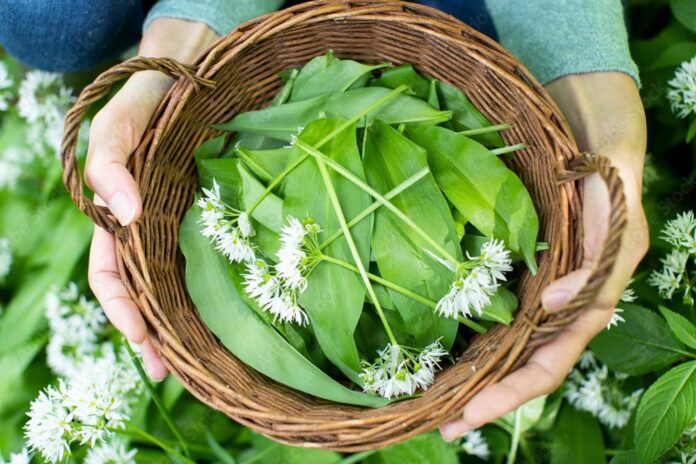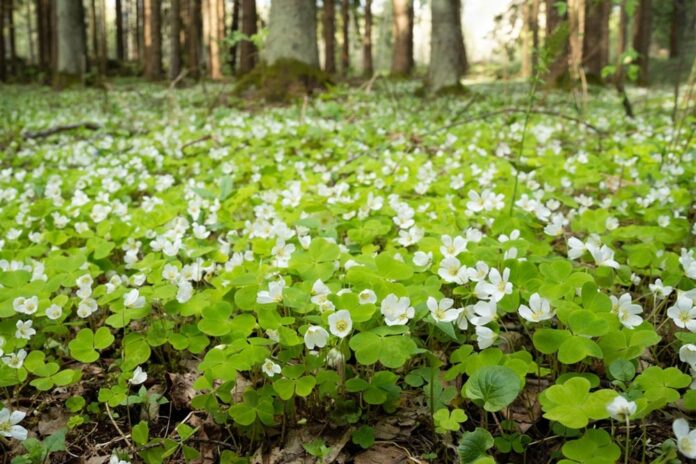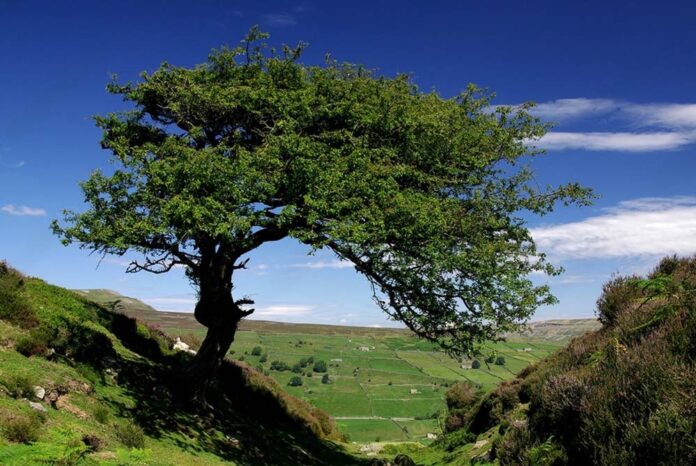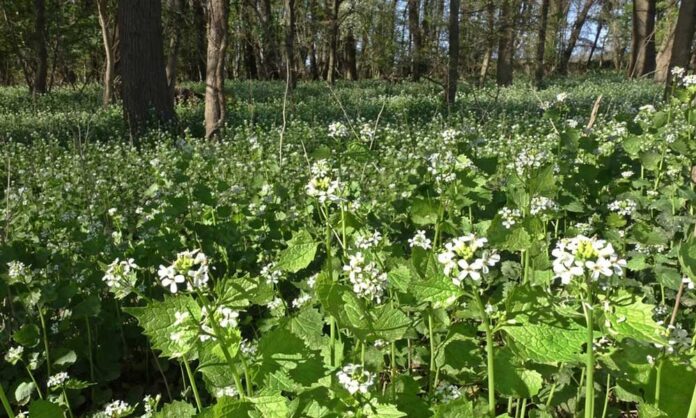A Delicious and Delightfully Irish Wild Green
The Irish countryside boasts a wealth of hidden treasures, and for foragers, common sorrel (Rumex acetosa), or the Irish name (Samhadh bó) is a delightful discovery. This tart and versatile wild edible adds a vibrant burst of citrus flavour to your dishes, and it’s surprisingly easy to find throughout Ireland.
Identifying Native Common Sorrel
Before you embark on your sorrel adventure, it’s crucial to identify it correctly. Here are some key features to look for:
- Sharp, Arrow-Shaped Leaves: Sorrel leaves are typically long and pointed, resembling an arrowhead. They have smooth edges and prominent central veins.
- Vibrant Green Color: Look for bright, emerald green leaves. As the plant matures, the leaves may develop a slight reddish tinge at the base.
- Citrus Tang: Sorrel’s most distinctive characteristic is its taste. Gently tear a small piece of the leaf and give it a taste. It should have a pleasantly sour or acidic flavour. (Important Note: Never consume large quantities of sorrel raw, as it contains oxalic acid, just like shop-bought spinach does!
Where to Find Sorrel in Ireland
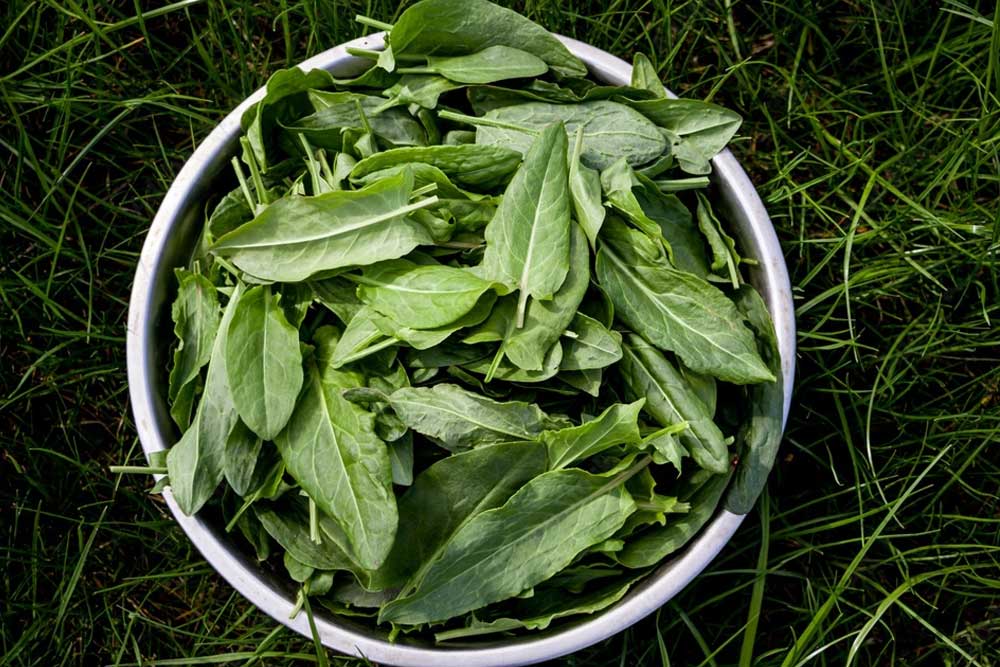
Common sorrel thrives in various habitats across Ireland, and the area of Marblehill is no exception! If you’re lucky enough to be exploring this delightful area, keep your eyes peeled for sorrel’s vibrant green presence. Here’s a closer look at where you might find this delightful wild edible throughout Ireland. Marblehill, with its rolling green fields and sunny meadows, provides the perfect environment for sorrel to flourish. Look for it in:
- Sunny Meadows and Pastures: Particularly those with slightly acidic soil, which Sorrel seems to favour.
- Hedgerows and Wooded Edges: Keep an eye out for sorrel peeking out from the edges of wooded areas or growing near hedgerows that border fields.
- Waste Ground: While not the most picturesque location, disturbed areas like waste ground can sometimes harbour hidden sorrel patches.
Beyond Marblehill: Exploring Sorrel’s Widespread Presence:
While Marblehill offers a prime location for finding sorrel, this versatile plant is a happy native wild plant throughout Ireland. Here are some other likely locations to keep in mind:
- Coastal Areas: Surprisingly tolerant of salt spray, sorrel can be found growing near the coast in some regions.
- Roadsides: While caution is advised to avoid areas with heavy traffic or potential pesticide use, sorrel can sometimes be found growing along roadsides, particularly in less developed areas.
- Gardens: Believe it or not, sorrel can sometimes find its way into backyards and gardens, especially those with slightly neglected corners. (Just be sure you’re not accidentally harvesting from your neighbor’s garden!)
Remember: Before harvesting any wild plant, ensure you can correctly identify it. When in doubt, it’s always best to err on the side of caution.
A Foraging Adventure with Sorrel:
While foraging for sorrel is a rewarding experience, it’s vital to practice responsible forager harvesting. Here are some key points to remember:
- Only harvest what you need: Leave plenty of plants behind so the sorrel population can thrive.
- Avoid polluted areas: Don’t forage near busy roads or areas where pesticides might be used.
- Respect private property: Always seek permission before foraging on private land.
- Start small and identify correctly: When consuming wild plants, always start with a small amount and ensure you’ve correctly identified the plant.
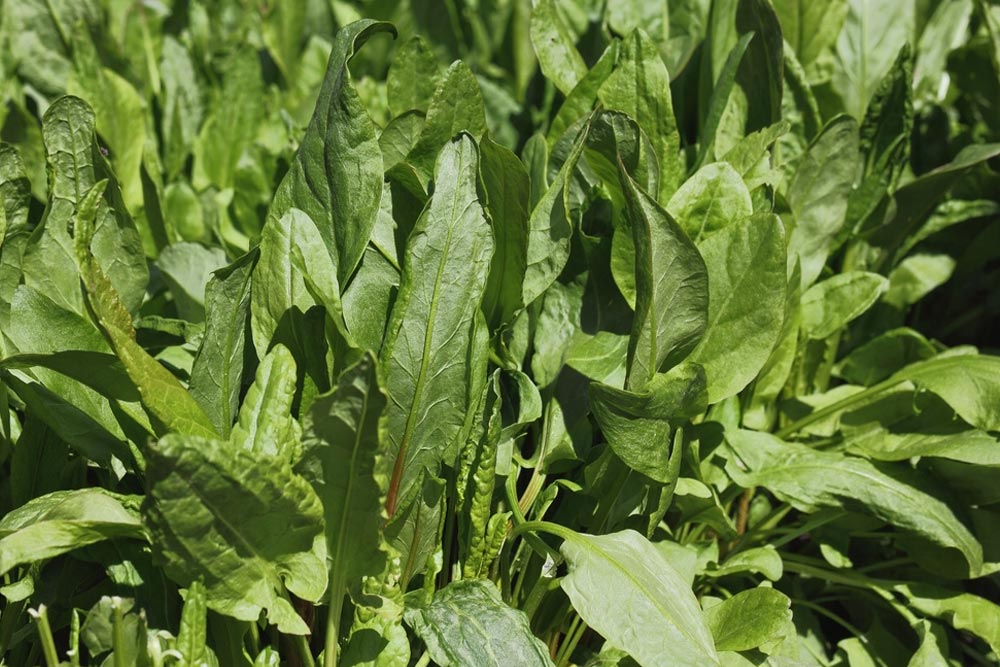
Unlocking the Flavour and Nutritional Benefits of Sorrel
Once you’ve identified and harvested your sorrel, it’s time to explore its culinary potential and impressive nutritional profile! Sorrel boasts a wealth of vitamins and minerals that can significantly enhance your diet:
- Vitamin A: Crucial for healthy vision and a strong immune system, Vitamin A plays a vital role in maintaining healthy skin and mucous membranes.
- Vitamin C: A powerful antioxidant, Vitamin C helps protect your cells from damage and supports overall health. It’s essential for collagen production, which keeps your skin, bones, and tissues healthy.
- Vitamin K: Important for blood clotting and bone health, Vitamin K also plays a role in regulating blood sugar levels.
- Iron: Essential for transporting oxygen throughout the body, iron deficiency can lead to fatigue and weakness. Sorrel provides a plant-based source of this vital mineral.
- Potassium: Helping regulate blood pressure and muscle function, potassium is an important electrolyte for overall health.
A Burst of Flavour and Potential Health Benefits

Here are some ideas to get you started with incorporating sorrel into your diet:
- Salads: Finely chopped sorrel adds a delightful tang to salads. Pair it with other spring greens and a light vinaigrette for a refreshing and flavourful starter.
- Soups and Stews: Sorrel can be added to soups and stews during the simmering process for a bright and flavorful touch. It complements creamy soups particularly well, adding a delightful acidity that cuts through the richness.
- Sauces and Dips: Sorrel’s sharp flavour makes it ideal for homemade sauces and dips. Try a creamy sorrel sauce for fish, a tangy dip for crudités, or even experiment with a vibrant green chimichurri.
- Eggs and Omelets: Finely chopped sorrel can be added to scrambled eggs or omelettes for a burst of flavour and a surprising green colour.
Herbal Benefits and a Final Note
While more research is needed to confirm its efficacy, anecdotal evidence suggests that sorrel tea may offer some potential health benefits:
- Aiding Digestion: Sorrel’s properties may help stimulate digestive juices and ease occasional constipation. The presence of organic acids can gently stimulate the digestive system.
- Soothing Skin Conditions: Folklore suggests that topical application of sorrel poultices has been used traditionally to soothe minor skin conditions. However, it’s important to consult a herbalist professional before using sorrel topically, especially for open wounds or irritated skin.
- A Final Note:
- Sorrel is a wonderful addition to your culinary repertoire, but remember to enjoy it in moderation due to its oxalic acid content. If you have any underlying health conditions, particularly kidney problems, consult a herbalist professional before incorporating sorrel into your diet in large quantities.
Happy Foraging!


